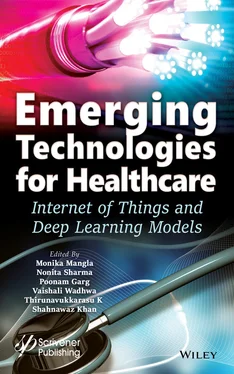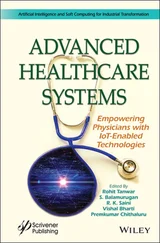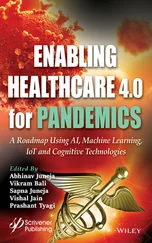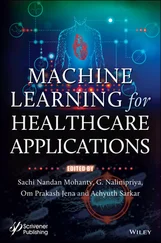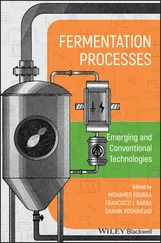Here, we would like to take the opportunity to acknowledge the assistance and contributions of all those engaged in this project. We especially would like to thank our authors for contributing their valuable work, without which it would have been impossible to complete this book. We express our special and most sincere thanks to the reviewers involved in the review process who contributed their time and expertise to improving the quality, consistency, and arrangement of the chapters. We also would like to take the opportunity to express our thanks to the team at Scrivener Publishing for giving the book its final shape and introducing it to the public.
Editors Monika Mangla, Nonita Sharma, Poonam Mittal, Vaishali Mehta Wadhwa, Thirunavukkarasu K. and Shahnawaz Khan
Part I BASICS OF SMART HEALTHCARE
1
An Overview of IoT in Health Sectors
Sheeba P. S.
Department of Electronics Engineering, Lokmanya Tilak
College of Engineering, Navi Mumbai, India
Abstract
In the recent past, several technological developments have happened owing to the growing demand for connected devices. Applications of Internet of Things (IoT) are vast, and it is used in several fields including home-automation, automated machines, agriculture, finance sectors, and smart cities. Life style diseases are increasing among urban population and lot of money is spent for the diagnosis and treatment of diseases. Adaption of IoTs in health sectors enables real-time monitoring of the patients and alerts the patients for health checkups whenever required and communicate the information from time to time. During pandemic situations like Covid-19 which we are facing today, the need for IoT-enabled services in health sector is essential as the doctors have to treat the patients from remote locations. The connected devices can help in surveillance and disease control, keep track of nutritional needs, mental health, stress management, emergency services, etc., which will lead to an efficient health management system. This article gives an overview of applications of IoT in health sectors and how it can be used for sustainable development and also addresses various challenges involved in it. Efficient use of IoT in health sectors can benefit healthcare professionals, patients, insurance companies, etc.
Keywords:IoT, healthcare, smart gadgets, health monitoring
Due to the increase in awareness of a healthy life style, the number of people depending on smart devices for monitoring their health is increasing day by day. IoT devices have become very essential to be the part of daily life in this technological advanced world. Various advancements are happening in the healthcare sectors from the recent past. With the advancement in technology in the use of IoTs integrated with Artificial Intelligence, a major digital transformation is happening in the healthcare sector. Various research is going on in this area which will add new dimensions to the healthcare system.
Wireless Body Area Networks (WBANs) have also been used extensively in healthcare services due to the advancement in technology. A survey on healthcare application based on WBAN is discussed in [1]. The paper also analyses the privacy and security features that arises by the use of IoTs in healthcare systems.
Use of RFID has become very common owing to the extensive applications of IoTs. A survey on RFID applications for gathering information about the living environment and body centric systems is discussed in [2]. The challenges and open research opportunities are also discussed in the article.
Various research is ongoing on to find the methods to improve the monitoring and tracking of the patients in an efficient manner. In [3], a novel IoT-aware smart architecture is proposed to monitor and track the patients. A smart hospital system is proposed which can collect real-time data and environmental factors by making use of ultra-low power hybrid sensing network.
A secure IoT-based healthcare system which operates with body sensor network architecture is introduced in [4]. Two communication mechanisms for authenticity and secured communication is addressed. The proposed method was implemented and tested using a Raspberry Pi platform.
In [5], authors address a survey paper on the IoT research and the discusses about the challenges, strengths and suitability of IoT healthcare devices and mentions about the future research directions.
One of the challenges faced by the IoT systems is regarding the security and privacy of data. In [6], the authors proposed a hybrid model for securing the medical images data. This model aims to hide the confidential patient data from the image while transmitting it.
Wireless body networks are becoming popular with the increased use of IoT smart devices. In [7], a solar energy powered wearable sensor node is addressed. At various positions of the body multiple sensors are deployed and a web-based application is used for displaying sensor data. Experiment results achieved good results for autonomous operation for 24 hours.
Body sensor networks is the one of the significant technologies used to monitor the patients by means of tiny wireless sensor nodes in the body. Security of such IoT devices poses a major issue in privacy of the patients. A secure system for healthcare called BSN-care is addressed in [8].
Securing the privacy of patients is of utmost importance for IoT-based healthcare systems. Various research is going on this area. In [9], a big data storage system to secure the privacy of the patients is addressed. The medical data generated is encrypted before it is transferred to the data storage. This system is designed as a self-adaptive one where it can operate on emergency and normal conditions.
Various systems are developed to take care of the personal needs while traveling which can aid in travel and tourism. An intelligent travel recommender system called ProTrip is developed in [10]. This system helps travelers who are on strict diet and having long-term diseases in getting proper nutritional value foods according to the climatic conditions. This system supports the IoT healthcare system for food recommendation.
The issues in the security and privacy of IoT-based healthcare system are a major concern. Most of the system is based on cloud computing for IoT solutions which has certain limitations based on economic aspects, storage of data, geographical architecture, etc. To overcome this limitation, a Fog computing approach is addressed in [11] and authors explores the integration of traditional cloud-based structure and Cloud Fog services in interoperable healthcare solutions.
For IoT-based healthcare system efficient authorization and authentication is required for securing the data. Such a system is addressed in [12]. It was found that the proposed model is more secure than the centralized delegation-based architecture as it uses a secure key management between the smart gateway and sensor nodes.
Recent security attacks for the private data and integrity of data is a matter of concern for the IoT healthcare systems. Conventional methods of security solutions are for the protection of data during patient communication but it does not offer the security protection during the data conversion into the cipher. A secure data collection scheme for IoT healthcare system called SecureData scheme is proposed in [13], and the experimental results showed that this scheme is efficient in protecting security risks.
Life style diseases like diabetes are common nowadays. It is very important for such patients to follow a strict diet and most of the time it is difficult for the healthcare professionals to get the precise physiological parameter of the patients. Without the knowledge of the current condition of the patients, it is difficult for the ontologies to recommend a proper diet for such patients. A fuzzy-based ontology recommendation system is proposed in [14] which can determine patient’s conditions and risk factors by means of wearable sensors and accordingly can suggest the diet. The experimental results proved that the system is efficient for diabetes patients.
Читать дальше
